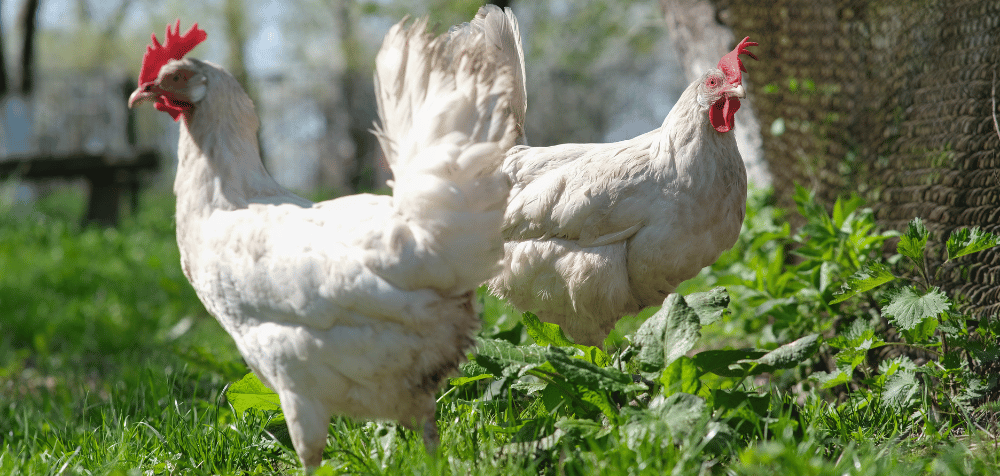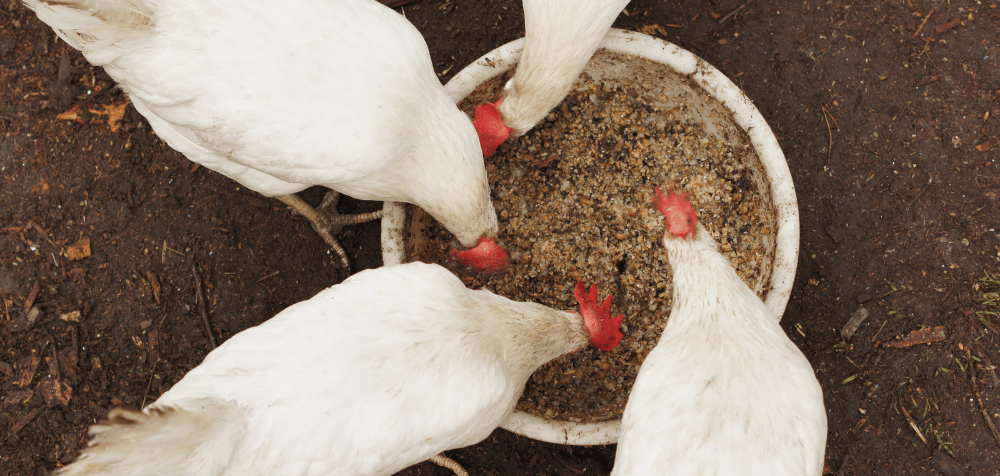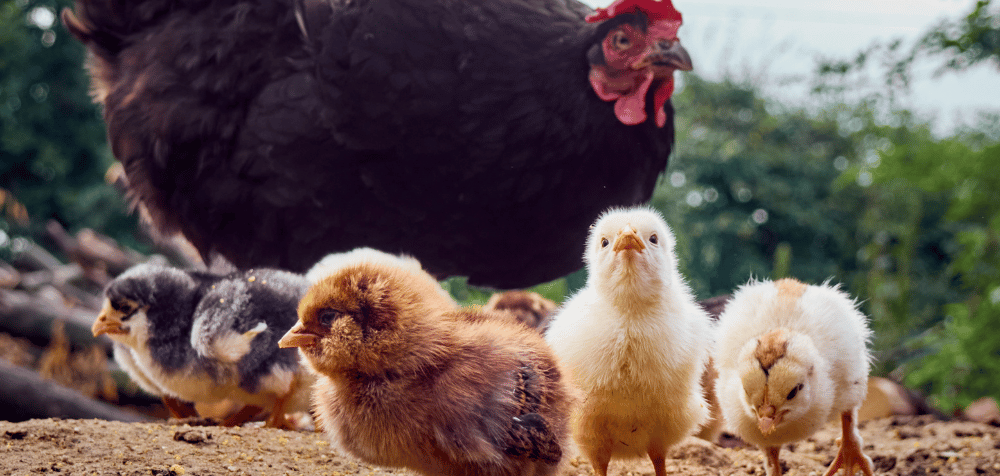Providing a balanced diet for your chickens is essential for their health, egg production, and overall happiness. When chickens get the nutrients they need, they’re more likely to thrive, giving you healthier eggs, better meat, and chickens that live longer, more fulfilling lives.
Why a Balanced Diet for Your Chickens Matters
Much like humans, chickens need a variety of nutrients to stay healthy. If they lack essential vitamins, minerals, or protein, they may develop deficiencies that can lead to poor egg production, stunted growth, or even disease.
Here are a few reasons why getting their diet right is so critical:
- Better Egg Production: Hens that are fed a balanced diet will produce more eggs, and those eggs will be of higher quality. Poor nutrition can lead to thin eggshells or fewer eggs being laid.
- Improved Immune System: A proper diet helps to boost the immune system of your chickens, making them less susceptible to illness.
- Faster Growth and Development: If you’re raising chickens for meat, a balanced diet ensures that your birds grow faster and are healthier.
- Longevity: A healthy diet can extend the lifespan of your chickens, reducing the likelihood of disease and other health issues that might cause premature death.
What Makes a Balanced Diet for Your Chickens?

To ensure you’re providing a balanced diet for your chickens, it’s important to understand what key nutrients they need. Chickens require a combination of protein, carbohydrates, fats, vitamins, and minerals.
Protein: The Building Block of Growth
Protein is one of the most important components in a chicken’s diet, especially for laying hens and growing chicks. It supports feather production, egg quality, and overall growth. Ideally, chickens should receive around 16-20% protein in their feed.
Good sources of protein include:
- Mealworms
- Soybean meal
- Fishmeal
- Peas
Carbohydrates: The Energy Source
Chickens need carbohydrates to maintain their energy levels, especially if they’re free-ranging and more active. Grains like corn and wheat are excellent sources of carbs for chickens.
Popular carbohydrate sources:
- Corn
- Wheat
- Oats
- Barley
Fats: For Energy and Absorption
Fats are essential in a chicken’s diet because they help with the absorption of vitamins and provide a dense energy source. Don’t go overboard, though – too much fat can lead to obesity.
Sources of healthy fats:
- Sunflower seeds
- Flaxseeds
- Fish oil
Vitamins and Minerals: The Micronutrient Heroes
Just like in human diets, vitamins and minerals are critical for chickens to maintain their health. A lack of essential vitamins like Vitamin D, E, or B can lead to developmental issues or poor egg quality. Calcium, in particular, is vital for laying hens, as it helps to form strong eggshells.
Essential vitamins and minerals for chickens:
- Calcium: Oyster shells or crushed eggshells
- Vitamin D: Found in some grains or through sunlight
- Vitamin E: Available in greens like spinach or turnip greens
- Phosphorus: Found in grains like barley and oats
Commercial Chicken Feed or Homemade Diet for Your Chickens

When it comes to feeding chickens, many poultry keepers ask whether it’s better to use commercial chicken feed or create their own homemade mixes. Both have their pros and cons and understanding the differences can help you decide what’s best for your flock.
Commercial Chicken Feed
One of the advantages of commercial chicken feed is that it’s specifically formulated to provide a balanced diet for your chickens. Whether you’re raising chicks, layers, or broilers, there are feeds designed to meet the nutritional needs of each type of chicken.
Benefits of commercial feed:
- Pre-mixed to ensure the right balance of protein, carbs, fats, vitamins, and minerals.
- Convenient and easy to store.
- Often includes added probiotics and supplements to boost the chickens’ health.
Homemade Chicken Feed
If you’re interested in making your chicken feed, it can be a more economical and sustainable option, especially if you have access to fresh ingredients. However, it does require more planning to ensure that your chickens are getting the right mix of nutrients.
Benefits of homemade feed:
- Control over what goes into the feed.
- Potential for a more natural, organic diet.
- Can be tailored to specific needs, like boosting calcium for laying hens or increasing protein for growing chicks.
Drawbacks:
- Requires more time and effort.
- Risk of nutritional imbalances if not carefully planned.
Common Mistakes in Chicken Feeding
Feeding chickens may seem simple, but there are a few common mistakes that poultry keepers make. Avoiding these errors can help you maintain a balanced diet for your chickens and keep them healthy.
- Feeding too many treats: While treats like kitchen scraps, fruits, or cracked corn can be a nice supplement, they shouldn’t make up more than 10% of your chickens’ diet. Too many treats can dilute the nutritional balance of their feed.
- Not providing enough calcium: Laying hens need extra calcium to form strong eggshells. If they don’t get enough, you may notice thin-shelled or even shell-less eggs.
- Over-reliance on free-ranging: While free-ranging chickens can find their food, it’s difficult to ensure they’re getting all the nutrients they need. Always provide a nutritionally balanced feed as a supplement, even if your chickens are out foraging.
Tips for Improving the Diet for Your Chickens
Here are a few practical tips to improve the diet for your chickens and keep them thriving:
- Provide access to grit: Chickens don’t have teeth, so they need grit (small stones) to help them digest food properly. Make sure they have access to grit at all times.
- Offer fresh greens: Chickens love fresh greens, and they’re a great source of vitamins. If your chickens can’t forage, you can provide them with leafy greens like spinach, lettuce, or kale.
- Check the feed regularly: Make sure your feed is fresh and stored properly. Moldy or spoiled feed can make your chickens sick.
Final Thoughts
Providing a balanced diet for your chickens is one of the most important things you can do as a poultry keeper. Not only does it improve their health, but it also leads to better egg production, healthier meat, and happier birds.
Whether you choose commercial feed or a homemade diet, make sure you’re meeting their nutritional needs to ensure a thriving flock.
By focusing on the diet for your chickens, you’ll be setting them up for a long and productive life, whether they’re egg layers, meat birds, or beloved pets.

